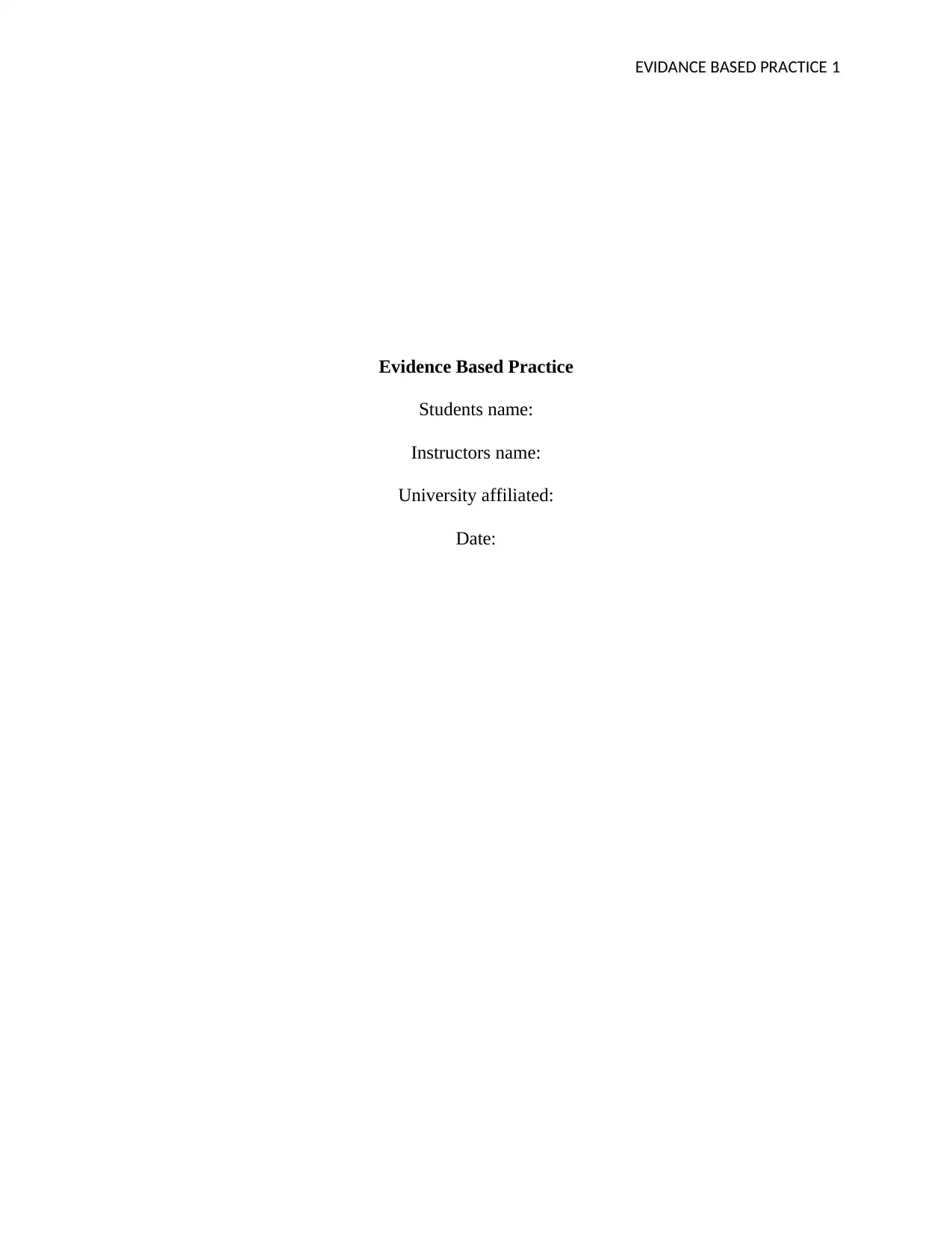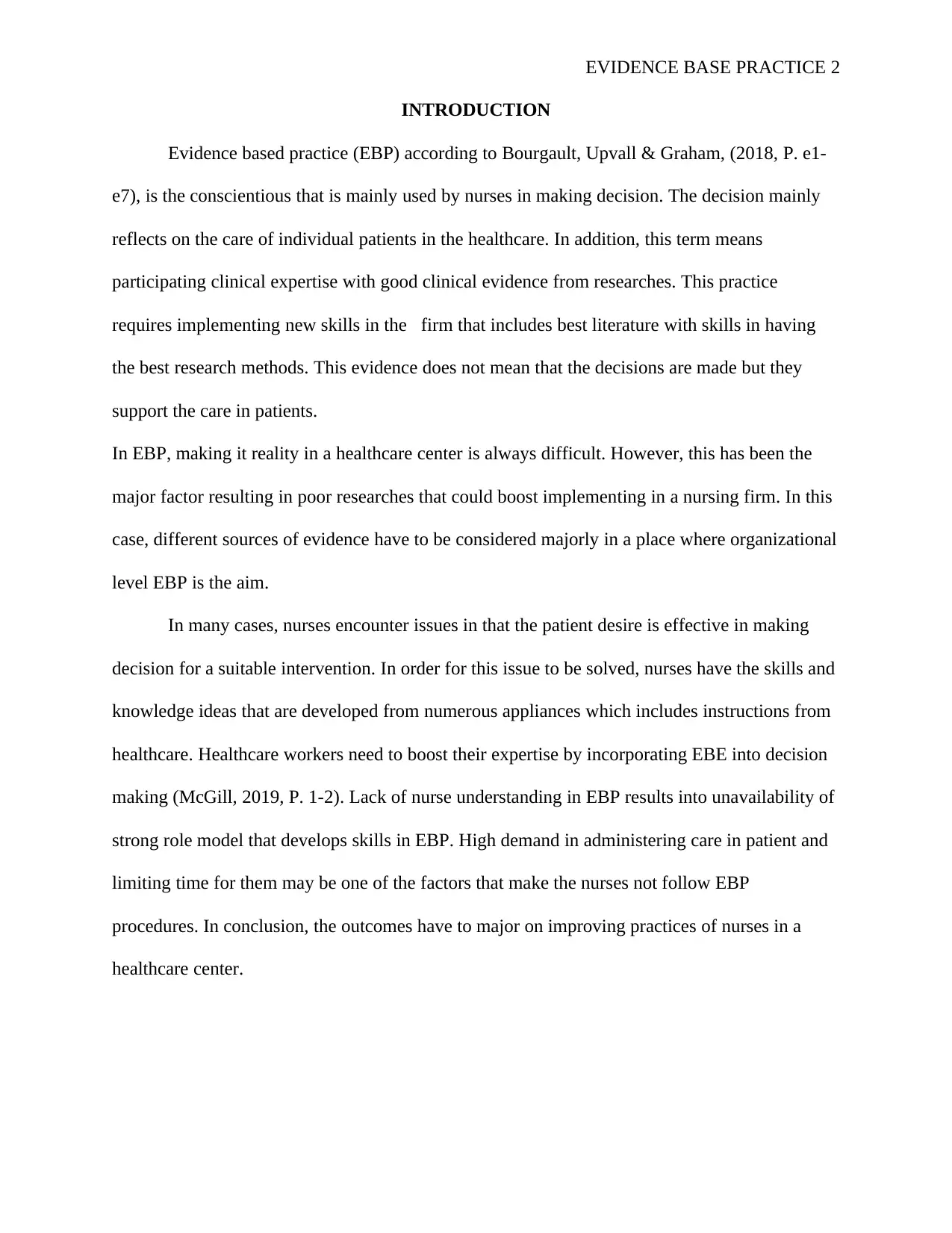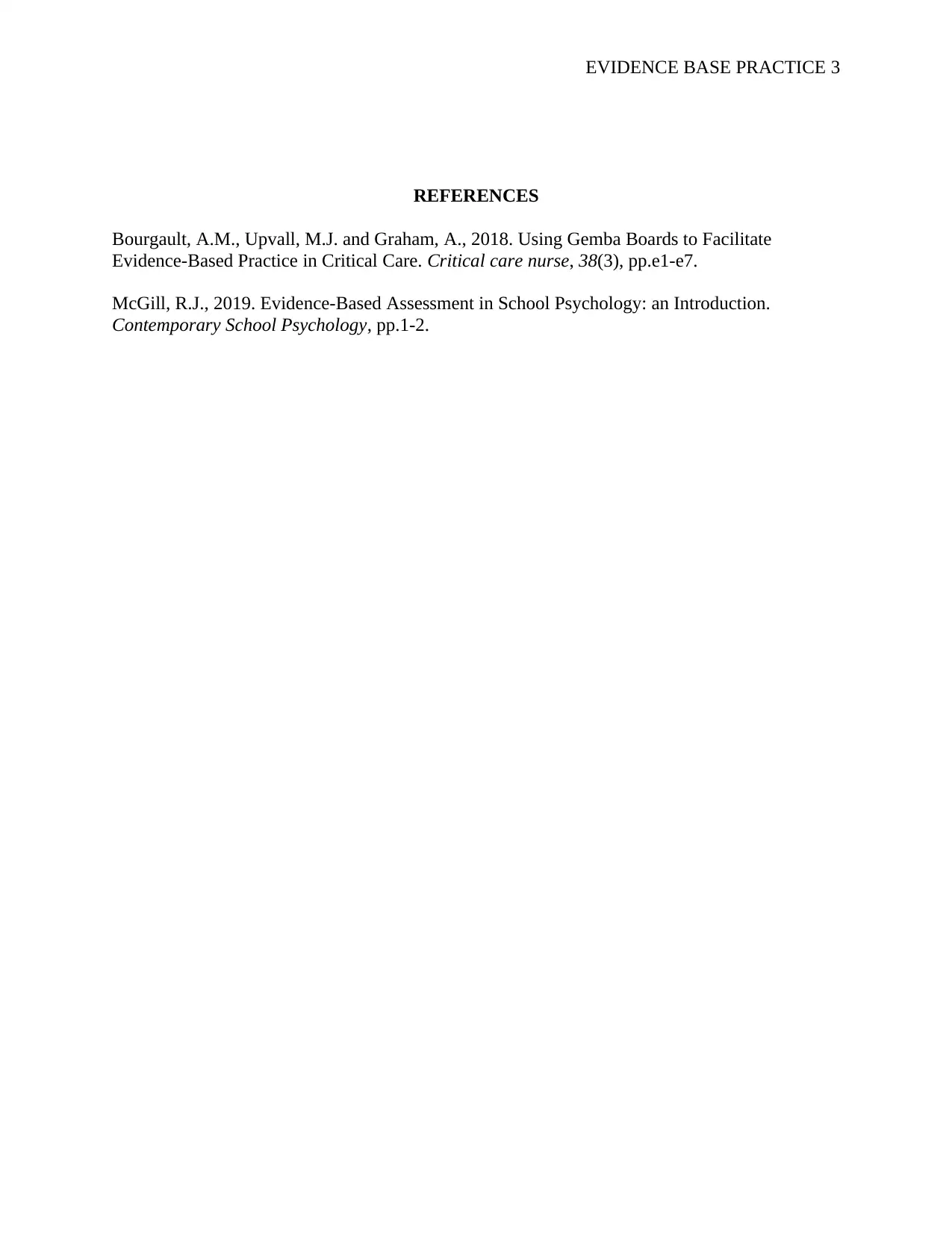NUR-590-O101: Evidence-Based Practice Implementation Plan Report
VerifiedAdded on 2023/01/19
|3
|384
|52
Report
AI Summary
This report provides an overview of an evidence-based practice (EBP) implementation plan, crucial for improving patient care in healthcare settings. The report begins with an introduction to EBP, emphasizing its importance in nursing and clinical decision-making. It explores the challenges in implementing EBP, such as a lack of understanding and time constraints. The core of the report focuses on the methods for implementing the proposed solution, including describing the setting and access to potential subjects, emphasizing the need for consent forms. It also outlines the time needed for project completion with a general timeline. The report further details the required resources, encompassing human, fiscal, and other essential elements, and the clinical tools or process changes necessary. The report also mentions the methods and instruments, such as questionnaires, used in the implementation process. Finally, the report references relevant literature to support the EBP approach, ensuring a well-rounded and practical guide for healthcare professionals. The report is designed to provide a practical framework for implementing EBP, promoting better patient outcomes and enhancing the quality of care.
1 out of 3










![[object Object]](/_next/static/media/star-bottom.7253800d.svg)